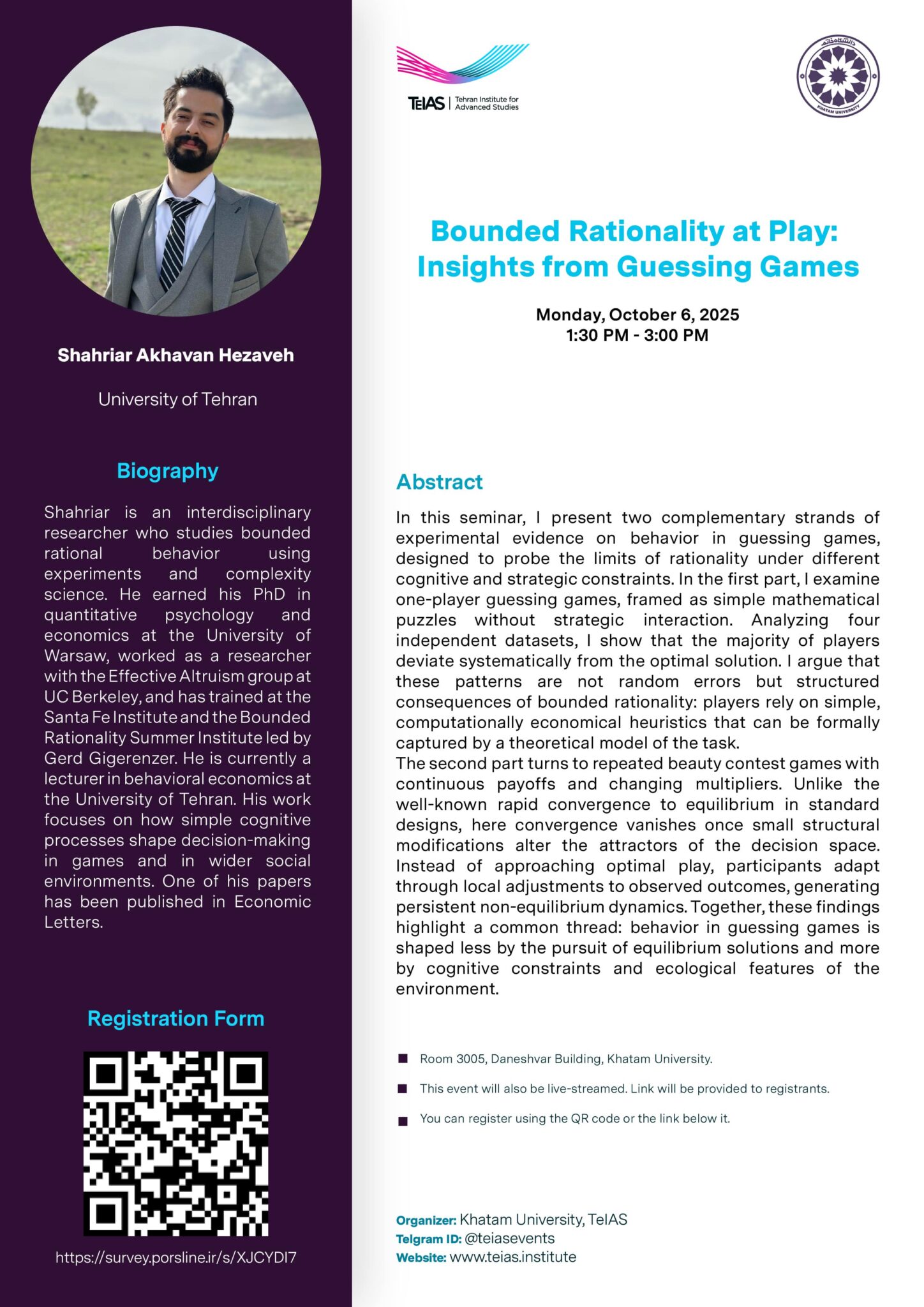Overview
In this seminar, I present two complementary strands of
experimental evidence on behavior in guessing games,
designed to probe the limits of rationality under different
cognitive and strategic constraints. In the first part, I examine
one-player guessing games, framed as simple mathematical
puzzles without strategic interaction. Analyzing four
independent datasets, I show that the majority of players
deviate systematically from the optimal solution. I argue that
these patterns are not random errors but structured
consequences of bounded rationality: players rely on simple,
computationally economical heuristics that can be formally
captured by a theoretical model of the task.
The second part turns to repeated beauty contest games with
continuous payoffs and changing multipliers. Unlike the
well-known rapid convergence to equilibrium in standard
designs, here convergence vanishes once small structural
modifications alter the attractors of the decision space.
Instead of approaching optimal play, participants adapt
through local adjustments to observed outcomes, generating
persistent non-equilibrium dynamics. Together, these findings
highlight a common thread: behavior in guessing games is
shaped less by the pursuit of equilibrium solutions and more
by cognitive constraints and ecological features of the
environment.


